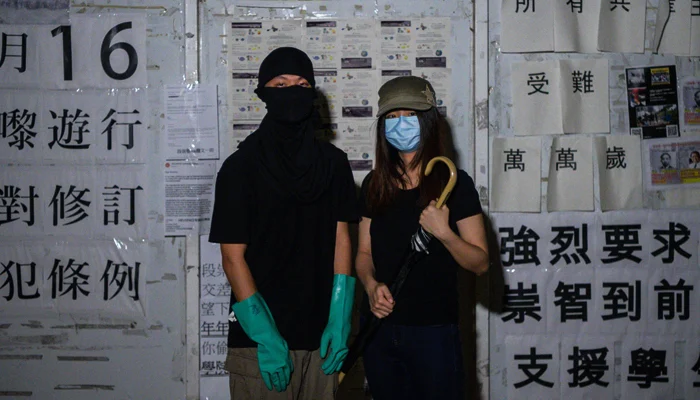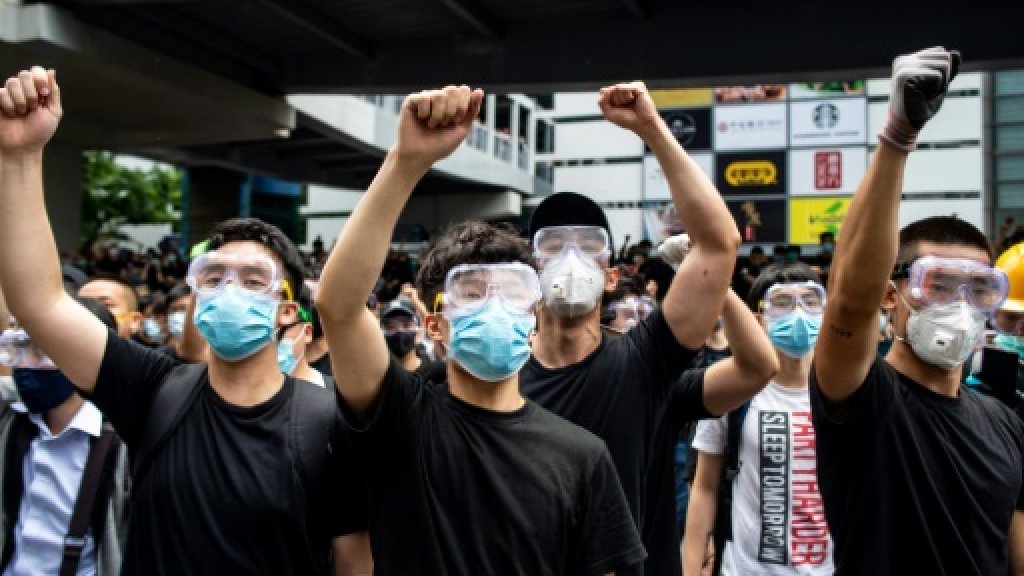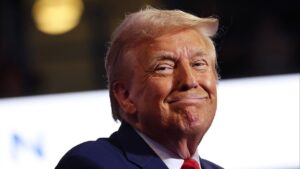Hong Kong’s tech-savvy protesters are going digitally dark as they try to avoid surveillance and potential future prosecutions, disabling location tracking on their phones, buying train tickets with cash and purging their social media conversations.
Police used rubber bullets and tear gas to break up crowds opposed to a China extradition law on Wednesday, in the worst unrest the city has witnessed in decades.
Anxieties have been symbolised in a profile picture that was being used by many opponents of the bill: a wilting depiction of Hong Kong’s black-and-white bauhinia flower.
But protesters have become increasingly nervous that using the picture online could attract attention from authorities, and have taken it down.
“This reflects the terror Hong Kong citizens feel towards this government,” said a woman surnamed Yau, 29, who works in education.
A protester surnamed Heung told AFP that many people immediately deleted “evidence showing you were present”.
The demonstrators who spoke with AFP only provided their first or last names due to the subject’s sensitivity, and all wore at least masks.
Heung, 27, had returned to the area where the protests had taken place to join the clean-up, and she put a post on Facebook calling for helpers. But she was afraid even a call for volunteers would link her to the protests.
“Maybe, I’ll delete the post tonight,” she said. “I don’t want to become one of their suspects.”
‘It would become like Xinjiang’
While Hong Kongers have free speech and do not encounter the surveillance saturation on the mainland, sliding freedoms and a resurgent Beijing is fuelling anxieties and fears.
Recent prosecutions of protest leaders have also used video and digital data to help win convictions.

Bruce Lui, a senior journalism lecturer at Hong Kong Baptist University, said awareness around security has increased, particularly with China’s “all-pervasive” surveillance technology and wide use of facial recognition and other tracking methods.













